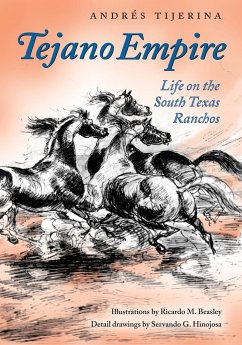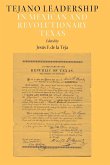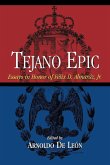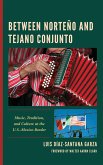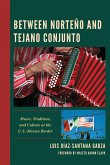A silent story is told by the stone chimneys of South Texas that were used to prepare the Tejano ranch meals of an earlier century and by the rifle port holes still seen in crumbling walls that once protected families. It is a story of a life and culture rarely portrayed in standard historical accounts, but to some degree kept alive in literary works and ballads and revealed mutely in the material culture nineteenth-century ranchers left behind. Andrés Tijerina has mined both traditional and nontraditional sources to portray the daily lives of the Texans of Mexican descent who peopled the Nueces Strip and surrounding areas in the period following the Texas Revolution. From then until the major demographic changes of the 1880s, Mexicano-Tejanos laid the foundation for later leadership within the Mexican-American political and business movements. In terms accessible to a general reading public, Tijerina describes the major elements that gave the Tejano ranch community its identity: shared reaction to Anglo-American in-migration, strong family values, cultural loyalty, networks of communication, Catholic religion, and a material culture well adapted to the conditions of the region.As Tijerina shows, the Tejano ranch family was one of the pillars of their community, serving as the inner sanctum of Tejano history, language, and culture. After the introductions historical overview of the region, the chapters address specific elements of the lives people led in the Valley and South Texas: work ways and tools, housing and ranch layouts, family networks and authority patterns, education and the arts, religion and daily prayer. Bold, energetic line drawings by the late Ricardo Beasley of San Diego, Texas, and graceful and accurate detailed drawings by Servando G. Hinojosa of Alice, Texas, graphically portray scenes from South Texas daily life, adding to the books appeal and its worth.As for decades Tejanos kept alive the values, folklore, music, and beliefs of their parents, so now Tijerina makes that heritage available not only to the grandchildren who may have learned shame at their own language but also to the larger population which can choose to appreciate and value that part of the American heritage. Andrés Tijerina is a professor of history at Austin Community College. He is author of the prize-winning Tejanos and Texas under the Mexican Flag, 1821-1836, published by Texas A&M University Press in 1994.
Bitte wählen Sie Ihr Anliegen aus.
Rechnungen
Retourenschein anfordern
Bestellstatus
Storno

